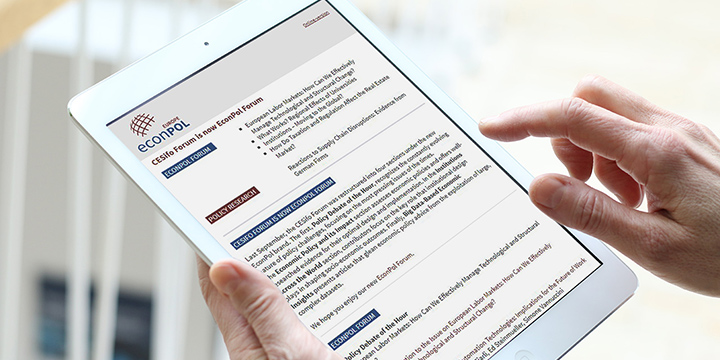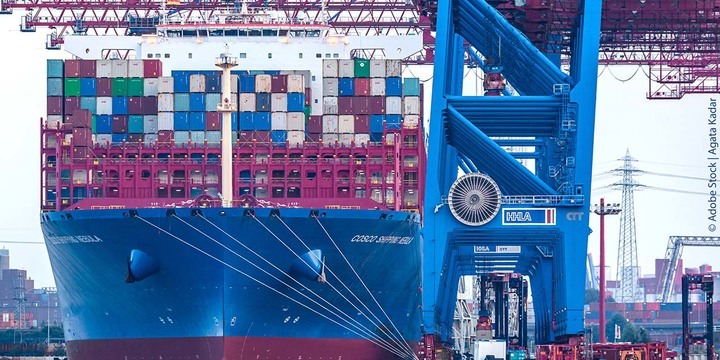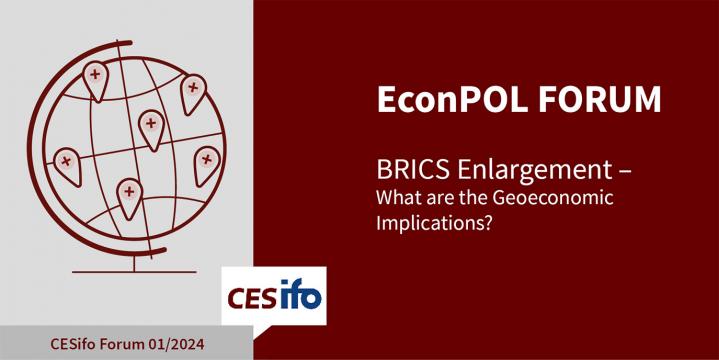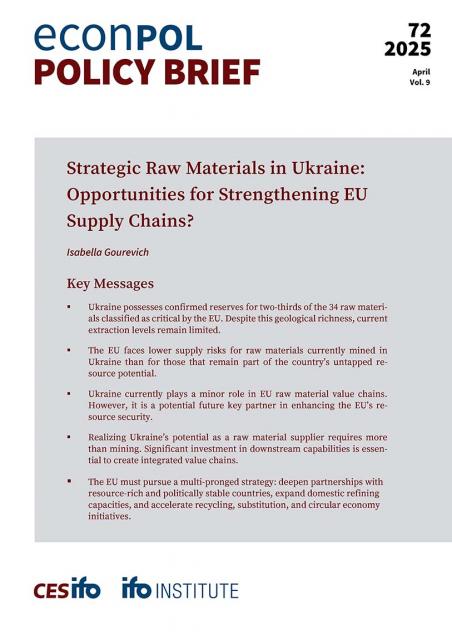News Archive

EconPol Newsletter: The Future of European Defense
|
Newsletter
| News
The first EconPol Newsletter of 2024 has just been published. This issue features a two Policy Reports on European defense spending in 2024 and the impact of sanctions on the Russian economy as well as a recently published Policy Brief on the supply chain strategies of German firms. We also report from our Breakfast Discussion on Geoeconomics at the Munich Security Conference 2024.

EconPol Europe at the Munich Security Conference
|
Event
| News
At the Munich Security Conference 2024 the ifo Institute together with EconPol Europe host a Breakfast Debate which will address current geopolitical challenges and the main aspects of this new geoeconomic reality with a lineup of top leaders from politics, industry, and academia.

Reconfiguration of Supply Chains of German Firms
|
Policy Brief
| News
Even after the coronavirus pandemic, German manufacturing is continuing to restructure its supply chains in order to reduce the risk of production losses. Companies are focused primarily on diversification. 58 percent have broadened their supply chains and found new suppliers in the past year. One in three companies is also planning to expand its supplier base further. Last year, 45 percent of manufacturing companies also made increased use of warehousing.

Mentoring Improves the School-to-work Transition of Disadvantaged Adolescents
|
EconPol Forum
| News
Mentoring programs can strongly improve the transition from school to work for disadvantaged adolescents. This article evaluates the effectiveness of one of the largest mentoring programs for disadvantaged adolescents in Germany. Results indicate that mentoring markedly boosts school achievement, patience, and labor-market orientation of students from highly disadvantaged backgrounds. The effects on math grades and labor-market orientation extend beyond the end of the program.

From BRICS to BRICS+
|
EconPol Forum
| News
Out of the more than 40 countries that have expressed interest in joining the BRICS bloc, the leaders of the five founding members announced in August 2023 that Saudi Arabia, Iran, Ethiopia, Egypt, Argentina, and the United Arab Emirates would join the BRICS in January 2024. The BRICS+ countries now represent around 45 percent of the world’s population and around a third of global GDP. Originally the BRICS were founded as an economic alternative to the Western bloc led by the USA and the EU.
